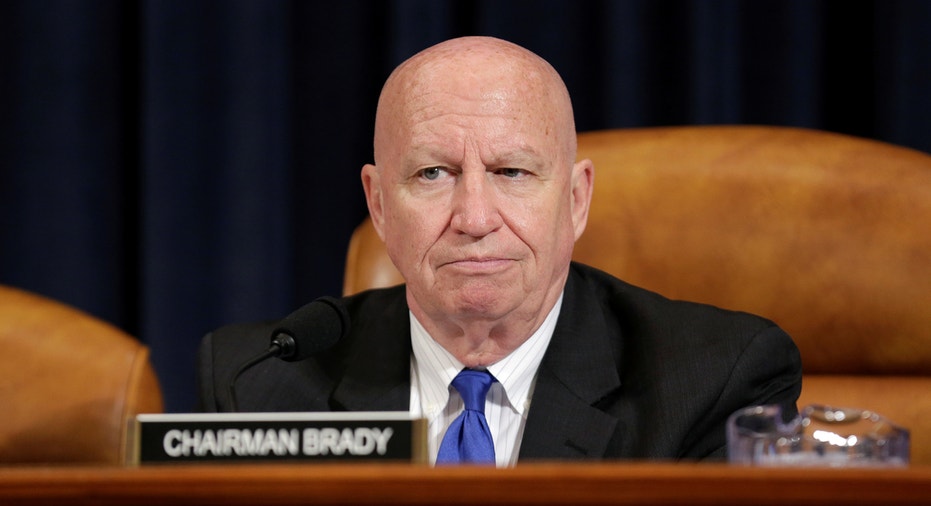Corporate lobbying helped derail border tax: senior U.S. Republican

An aggressive corporate lobbying effort to derail a Republican-backed border tax has forced lawmakers working on tax reform to seek alternatives, Kevin Brady, chairman of the tax-writing U.S. House Ways and Means Committee, said on Wednesday.
The proposed border adjustment tax on U.S. companies that move jobs abroad and import products back into the U.S. market was meant to be a linchpin of a Republican tax overhaul in the House of Representatives.
Brady and members of the Ways and Means Committee faced aggressive pushback from leading companies that rely on imports, eroding Republican support for the border tax.
"To their credit, they mobilized quickly and aggressively, and yes, it had an impact," Brady told Reuters in an interview on Wednesday.
It was a rare instance of a lawmaker acknowledging the impact of industry in lawmaking.
He would not declare the proposed border tax dead, but he acknowledged being open to other alternatives that would accomplish the same goals, primarily removing incentives for American companies to move operations overseas.
Retailers were united in their response.
Led by the Retail Industry Leaders Association, CEOs of Target and Autozone and lobbyists for auto manufacturers like Toyota met with members of Congress and the administration.
The coalition the association built targeted lawmakers in their home districts.
'FIGHT CONTINUES'
"I have seen no other issue bring the retail industry closer together than this one," said Brian Dodge, spokesman for the association. "The threat to retailers was enormous and the response needed to be swift and strong."
"We are proud of the work we have done and the impact we have had, but we are not done yet," he said. "As long as leaders continue to defend the BAT, the threat remains and our fight continues."
The National Retail Foundation, a group that includes smaller retail business owners, took a group of small business owners to Washington this week to argue against the border tax. In 150 meetings with lawmakers, they drove home how the tax would force them to raise prices.
“Hardest hit would be low and middle-income consumers, especially those on a fixed income,” NRF Senior Vice President David French wrote to Brady in a letter on Wednesday.
The failure of Republicans to repeal Obamacare, the signature 2010 healthcare overhaul of Democratic former President Barack Obama, has many in Congress now turning their attention to tax.
Republican President Donald Trump has vowed to sign a tax overhaul into law this year.
Both political parties have voiced support for an overhaul, but varying approaches to the issue, a lack of cooperation on healthcare, and corporate opposition to the House Republican plan have lowered expectations of progress.
Commenting on the border-adjustment tax on Wednesday, House Speaker Paul Ryan said: "I understand it's controversial and some people don't like it."
Ryan told The Mike Gallagher Show syndicated radio program: "At the end of the day, what matters is we get tax reform that we can all agree to, and so we're working toward that consensus ... We're going to get there."
(Reporting by Ginger Gibson; Editing by Chris Sanders and Howard Goller)



















